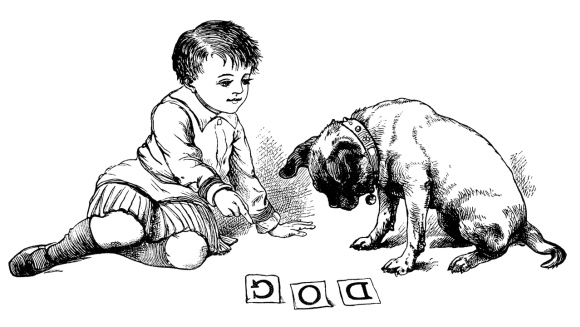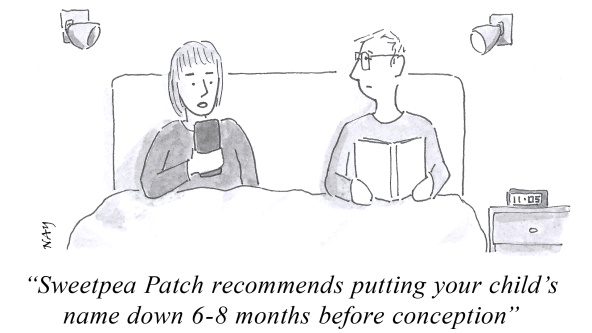What is a nursery and how do they work?

All nurseries in the UK, regardless of whether they are part of state schools, private schools, children's centres, or standalone independent entities, must be registered with and regulated by the government and, like schools, are routinely inspected. They are also required by law to follow the Early Years Foundation Stage.
What is the Early Years Foundation Stage?
In England nurseries and kindergartens follow the Early Years Foundation Stage (EYFS) — a kind of ‘national curriculum’ for preschools. This is divided into three key areas:
Learning and development
Assessment
Safeguarding and welfare requirements
EYFS recognises every child is unique and that children develop and learn in different ways. The curriculum is designed to enable and promote positive relationships. Similar systems exist elsewhere in the UK.
The seven areas covered by the EYFS are:
Communication and language
Physical development
Personal, social and emotional development
Literacy
Mathematics
Understanding the world
Expressive arts and design
Training qualifications
The manager of a nursery must hold a full and relevant level 3 qualification (that is A level standard), with at least half the staff holding level 2 qualifications (GCSE 9-4 or BTec/NVQ level 2 standard).
Staff must understand, and be trained in, safeguarding children.
Enhanced DBS checks should have been carried out on all staff.
All staff must be trained, but the level of training and qualifications held may vary considerably, so do check.
Official guidance states that, 'All providers should have appropriate qualifications, training, skills and knowledge and a clear understanding of their roles and responsibility'.
A wad of qualifications and great intellect does not necessarily turn someone into a great playworker. You want articulate, intelligent staff to engage with, and be engaged by, your child.
Staff should openly enjoy working with very young children and take the same pride that you do in their development and progress.
Health, safety, and risk assessments
Accommodation should be warm, bright, airy, and sweet-smelling. The last thing you need is the stench of dirty nappies, toilet training accidents, or stewed food. Cleanliness is important. Expect a bit of mess towards the end of the day but generally, there is no excuse for grubby toys, tatty displays, dirty floors, or rubbish bins filled to the brim.
You should also expect to find procedures for:
Regular risks assessments
Frequent checks of play equipment
Regular fire drills.
Staffing ratios
Fees usually reflect the strict, age-dependent staffing ratios. Typically:
Children aged 0-2, one member of staff to every three children
Children aged 2-3, one member of staff to every five children
Children aged 3-5, one member of staff to every eight children
This requirement changes in some settings (such as independent schools) where a member of staff has qualified teacher status or equivalent.
Key workers
You should be assigned a key worker who will keep you up to speed with your child's time at nursery and development in general. S/he will help plan activities for your child, monitor and assess progress, and amend their activity and learning programmes as necessary. They should be involved with identifying any support needs and should listen and act on any concerns or worries you may have. Parent-nursery communication is important and should be frequent. You should hope for daily feedback, not just a summary of what your child has done but how they have been — warts and all.
Monitoring of your child’s progress
Children should be regularly observed by staff as part of the ongoing assessment process but the aim is to keep bureaucracy to a minimum, so children and their needs get the lion's share of staff time. That said, between the ages of 2 and 3, you can expect a detailed, written assessment where key areas of progress and any areas of developmental delay are identified. If needs are identified, assessors may discuss how you can help and support your child at home. You are encouraged to share this information with your health visitor as the nursery cannot do so without your consent. The EYFS profile should be fully completed in the term in which your child turns 5.
Self-care
Are the children encouraged to dress themselves, use the toilet properly, eat healthily, and keep fit? Do they look happy and cared for? Noses wiped, hand-washing encouraged...
Next steps
Moving to 'big school' may seem a long way off when your child is still a toddler but blink and they'll be ready for the next stage. Ask how children are prepared for moving on to their next educational setting. Is there a transition programme in place? Do they help parents prepare their children for change?
What about children with special needs?
A good nursery will cater for a range of children including those with special needs. However, the type, nature, and severity of your child's special needs may determine the type of setting you want for your child. See Nurseries for special needs.
Free nursery hours and fees
Every 3 and 4-year-old in England is entitled to 15 hours of nursery education for 38 weeks of the year, funded by the state. Some children are eligible for 30 hours depending on parental income. Wales has a similar entitlement as does Scotland with all 3 and 4 years qualifying for 30 hours a week of funded provision. Funded pre-school places are available in Northern Ireland for at least 12.5 hours a week. Fees vary considerably but the majority of nurseries, children's centres, pre-schools, playgroups, and even some child-minders will qualify. For private nurseries, vouchers may fund only some of the sessions and there may be hidden extras. Never assume all care will be free — ask what is included, what is excluded, and what you need to provide.
Wrap-around and holiday care
This should be guided by (but need not strictly adhere to) the EYFS framework. You will almost certainly have to self-fund any wrap-around care, even if your child is attending a state nursery or state nursery school.
Featured in: Nursery & early years
Tags: Nursery Choosing a School



